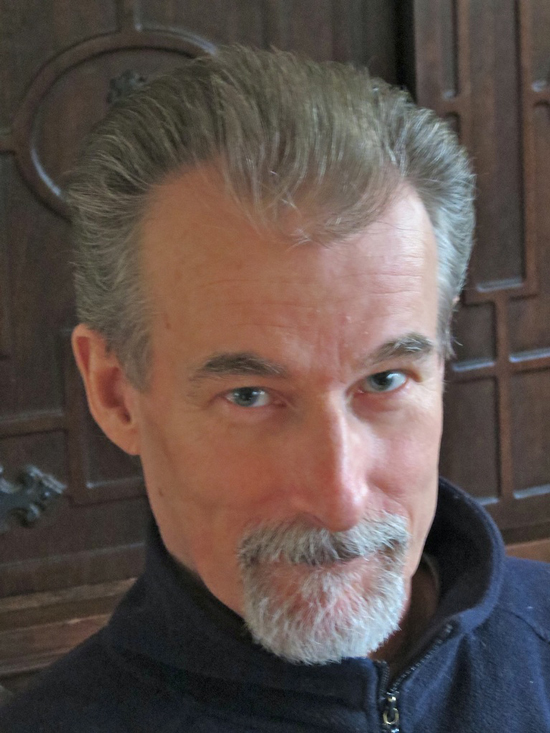
Douglas Farrow is professor of Christian Thought in the Faculty of Religious Studies, project director for Pluralism, Religion and Public Policy, and the newly appointed Kennedy Smith Chair in Catholic Studies in the Faculty of Arts. He is giving his inaugural lecture in the latter role at 7 p.m. on Jan. 22, at the McGill Newman Centre (3484 Peel St.), with a reception preceding at 6:15. Recently, Farrow took the time to talk to the Reporter about the Chair, his upcoming lecture, the relationship between church and state, and Catholic Studies at McGill.
Tell us first about the Kennedy Smith Chair: what is it and what do you do?
This is an endowed chair that was established in AD 2000 “with the purpose of supporting an eminent scholar in the field of Catholic Studies” who will contribute to the Catholic Studies program and work with the Faculty of Arts and McGill’s partner in this enterprise – the Newman Institute of Catholic Studies. It’s a rotating chair, with flexible specializations, intended to help students inside the university and the community beyond the university explore the interface between Catholicism and culture. I’m the third occupant.
Besides my research and symposia work, I teach Introduction to Catholicism (CATH 200) and cooperate with colleagues in several faculties to support and promote the Catholic Studies minor. We’ve had some wonderful students and we’re always looking for more, if you know any who might be interested. We’re also working on some great projects, which will show up on our new website at http://catholicstudies.ca. That includes a symposium in February on Claude Ryan, one of the most thoughtful and influential public figures Quebec has produced in recent times, and a contributor to the Catholic Studies program in its early years.
What are you going to talk about in your inaugural lecture?
The lecture is entitled “Catholics and the Neutral State.” For me it’s another foray into political theology and the relationship between religion and politics, but it’s also made very timely by the dispute here in Quebec over Bill 60. There’s enormous confusion about the relation between religion and politics that needs some clearing up. I’ll be engaging intellectually with a truly eminent Catholic scholar from a past generation – one who was very influential at the Second Vatican Council, particularly in the crafting of Dignitatis Humanae, the document on religious freedom – Fr. John Courtney Murray.
It won’t be all admiration, however. I’m somewhat critical of his take on Dignitatis and of his support for the idea of a religiously neutral state. That old lion, Pope Leo XIII, of whom Murray is respectfully critical, got more than a few things right. By the way, did you know that Leo was the only pope ever to address an encyclical to Canada? With a few changes Affari vos could be issued again today – probably to Quebec, though, rather than Manitoba.
You’re going to argue that the state shouldn’t be religiously neutral? Isn’t that a pretty tough argument to make?
Well, actually I’m going to argue that the state can’t really be neutral, and I think that’s a pretty easy argument to make, though some of what I say won’t be quite that easy. The church–state relationship is historically and theologically complex, to say the least, and full of controversy. It should be fun.
More specifically, I’m going to talk a bit about secularity and the famous doctrine of the Two – the Church’s claim to a profoundly political authority – furthering a conversation about the libertas ecclesiae (the freedom of the Church) begun at the Religious Freedom in Education symposium last term. And with Dean Manfredi and Bishop Dowd offering responses, I’ll have to make sure I’ve said something of substance.
McGill has never been a very Catholic sort of place, has it? Can Catholic Studies really flourish here?
One might not think so. The flavour of McGill has tended to be more Protestant or even more agnostic, like McGill himself. It was founded at the same time as King’s College London, where I used to teach, but more on the model of University College, which was decidedly skeptical about religion. And Catholicism has not fared well of late in many sectors of our society.
But of course Catholicism is a global religion, growing fast in Africa and Asia and in other places much tougher to get along in than here! Whether one loves studying the past or the present, the familiar or the foreign, there is so much to see, so much to think about, and so much to learn from or be inspired by in Catholicism. Whether in art, architecture, music, politics and diplomacy, economics, science, medicine, ethics, philosophy or theology – one no sooner gets serious in one’s studies than one begins to bump into persons or things or ideas that are Catholic. Catholic studies can flourish almost anywhere, and certainly in any serious university like McGill. The Catholic Church, after all, invented the university as we know it.
